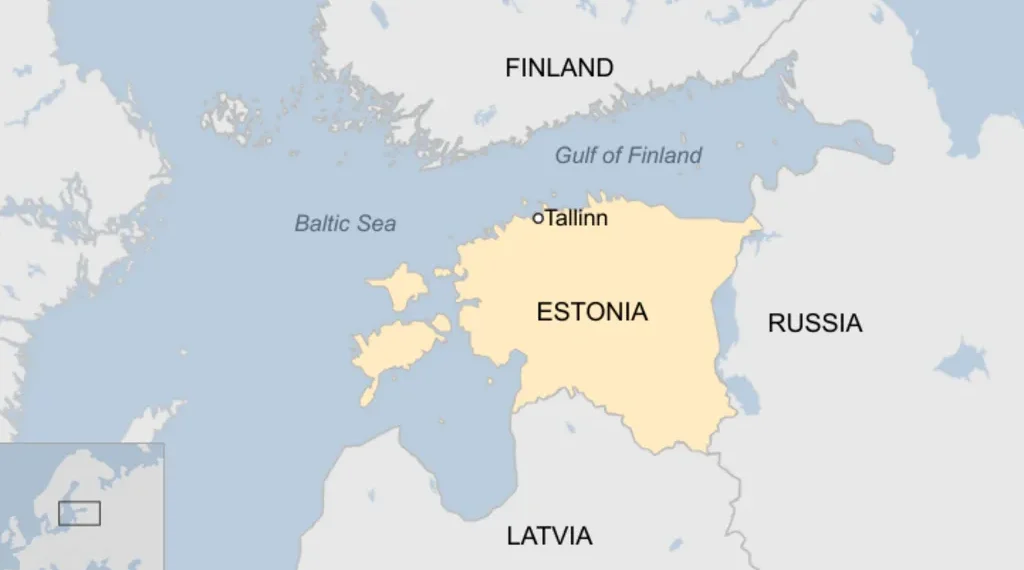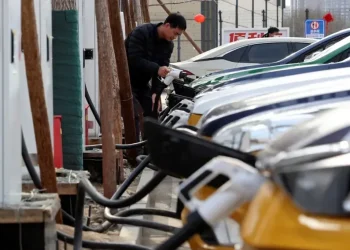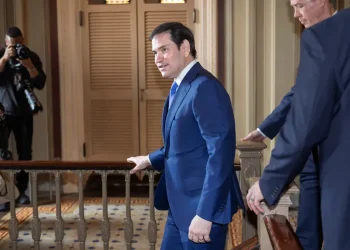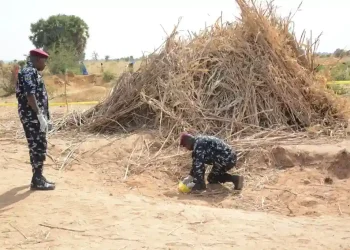Estonia Seeks NATO Consultation After Russian Jets Enter National Airspace
Published Time: 09-20-2025, 11:00 EDT
Estonia has formally requested urgent consultations with NATO after Russian fighter jets reportedly violated its airspace over the Gulf of Finland on Friday. The incident marks a growing pattern of airspace incursions in the Baltic region, heightening tensions between NATO and Russia.
According to Estonia’s Foreign Ministry, three Russian MiG-31 jets entered Estonian airspace without authorization and remained there for approximately 12 minutes. NATO scrambled allied aircraft in response, while Russia denied violating Estonia’s territorial boundaries.
Details of the Airspace Violation
Estonia described the incursion as a “brazen violation” of its sovereignty. The Foreign Ministry confirmed the jets had no flight plans filed, transponders switched off, and lacked two-way radio communication with Estonian air traffic control.
A NATO spokesperson stated the alliance “responded immediately and intercepted the Russian aircraft,” emphasizing that the incident reflects “reckless Russian behavior and NATO’s readiness to act.” Italian, Finnish, and Swedish jets were deployed under NATO’s Baltic Air Policing mission to escort the aircraft out of Estonian airspace.
Russia’s Defense Ministry, however, claimed the jets were on a “scheduled flight” over neutral Baltic waters, more than two miles from Estonia’s Vaindloo Island, and argued that international airspace regulations were fully respected.
NATO Response and Article 4 Consultation
In response to the incursion, Estonian Prime Minister Kristen Michal announced the country’s decision to invoke NATO Article 4, which triggers urgent consultations among member states regarding potential threats to territorial integrity.
“NATO’s response to any provocation must be united and strong,” Michal said. “We consider it essential to consult with our allies to ensure shared situational awareness and agree on our next joint steps.”
Estonia’s Foreign Minister Margus Tsahkna described the violation as a “clear provocation,” calling on NATO members to demonstrate political and practical unity in their response.
Escalating Regional Tensions
This incident comes amid heightened tensions between NATO and Russia following Moscow’s full-scale invasion of Ukraine in 2022. Recent weeks have seen multiple airspace violations, including Russian drones entering Poland and Romania, both NATO members.
In response, NATO pledged to strengthen its eastern flank by deploying fighter jets and military assets across the region. NATO forces from the UK, France, Germany, Denmark, and other member states are participating in air defense missions over Poland and the Baltics.
Estonia’s Defence Minister Hanno Pevkur told the BBC, “It is unprecedented that for 12 minutes the Russians were in our airspace. In this situation, the only right thing to do is to push them out of Estonian airspace.”
EU and Regional Reactions
Top European officials have condemned the Russian action. EU diplomat Kaja Kallas called the incursion “an extremely dangerous provocation,” while European Commission President Ursula von der Leyen stated on X that the EU will “respond to every provocation with determination while investing in a stronger Eastern flank.”
Estonia’s ambassador to the UK, Sven Sakkov, emphasized the need for “clear, practical steps” to protect NATO’s eastern airspace, noting that Estonians remain determined to defend their territory.
Russia’s Position
Russia denied deliberately violating Estonian airspace, asserting that its jets followed international airspace rules. The defense ministry argued the aircraft maintained a safe distance from Estonia and were operating over neutral waters.
This is not the first incursion in 2025; Estonia reported four prior airspace violations by Russian aircraft. Russian actions in neighboring NATO member states, including drone breaches in Poland and Romania, have further fueled concern over the alliance’s eastern security.
Broader NATO Implications
The repeated airspace violations underscore the need for NATO to reinforce its eastern flank. NATO officials have reiterated that collective defense remains a priority, ensuring member states are prepared to respond to potential threats.
Pevkur stressed the importance of keeping the “front door closed” in Estonia, highlighting NATO’s role in securing airspace along the alliance’s eastern boundary. Poland, Romania, and other Baltic nations continue to monitor Russian activity closely, scrambling jets as needed to deter further incursions.
Outlook
Estonia’s Article 4 consultation will bring NATO members together to assess the threat and determine coordinated responses. The alliance’s continued presence and readiness in the Baltics aim to deter further provocations and reassure member states of mutual defense commitments.
Estonian leaders emphasize that Russia’s actions are intended to distract NATO from Ukraine, but they stress the alliance’s collective strength in deterring aggression. NATO’s unified response will be closely watched by member states and global observers as tensions persist in the region.
This article was rewritten by JournosNews.com based on verified reporting from trusted sources. The content has been independently reviewed, fact-checked, and edited for accuracy, neutrality, tone, and global readability in accordance with Google News and AdSense standards.
All opinions, quotes, or statements from contributors, experts, or sourced organizations do not necessarily reflect the views of JournosNews.com. JournosNews.com maintains full editorial independence from any external funders, sponsors, or organizations.
Stay informed with JournosNews.com — your trusted source for verified global reporting and in-depth analysis. Follow us on Google News, BlueSky, and X for real-time updates.














